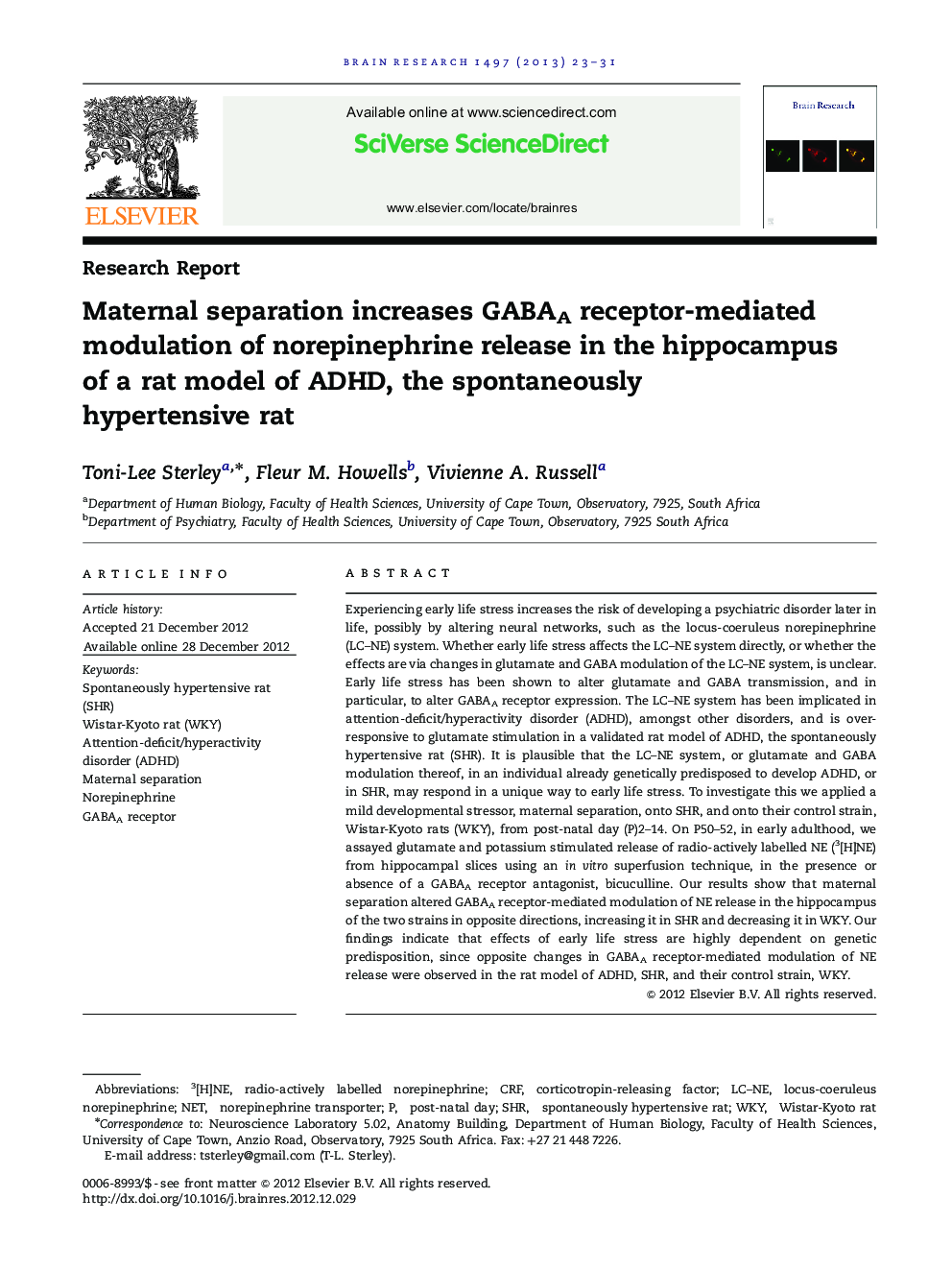| Article ID | Journal | Published Year | Pages | File Type |
|---|---|---|---|---|
| 4324847 | Brain Research | 2013 | 9 Pages |
Experiencing early life stress increases the risk of developing a psychiatric disorder later in life, possibly by altering neural networks, such as the locus-coeruleus norepinephrine (LC–NE) system. Whether early life stress affects the LC–NE system directly, or whether the effects are via changes in glutamate and GABA modulation of the LC–NE system, is unclear. Early life stress has been shown to alter glutamate and GABA transmission, and in particular, to alter GABAA receptor expression. The LC–NE system has been implicated in attention-deficit/hyperactivity disorder (ADHD), amongst other disorders, and is over-responsive to glutamate stimulation in a validated rat model of ADHD, the spontaneously hypertensive rat (SHR). It is plausible that the LC–NE system, or glutamate and GABA modulation thereof, in an individual already genetically predisposed to develop ADHD, or in SHR, may respond in a unique way to early life stress. To investigate this we applied a mild developmental stressor, maternal separation, onto SHR, and onto their control strain, Wistar-Kyoto rats (WKY), from post-natal day (P)2–14. On P50–52, in early adulthood, we assayed glutamate and potassium stimulated release of radio-actively labelled NE (3[H]NE) from hippocampal slices using an in vitro superfusion technique, in the presence or absence of a GABAA receptor antagonist, bicuculline. Our results show that maternal separation altered GABAA receptor-mediated modulation of NE release in the hippocampus of the two strains in opposite directions, increasing it in SHR and decreasing it in WKY. Our findings indicate that effects of early life stress are highly dependent on genetic predisposition, since opposite changes in GABAA receptor-mediated modulation of NE release were observed in the rat model of ADHD, SHR, and their control strain, WKY.
► We examine effects of maternal separation on a rat model of ADHD. ► Maternal separation increased GABAA receptor modulation of norepinephrine release in a rat model of ADHD. ► Maternal separation effects were opposite in a rat model of ADHD and control strain.
